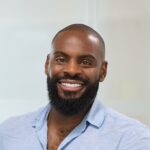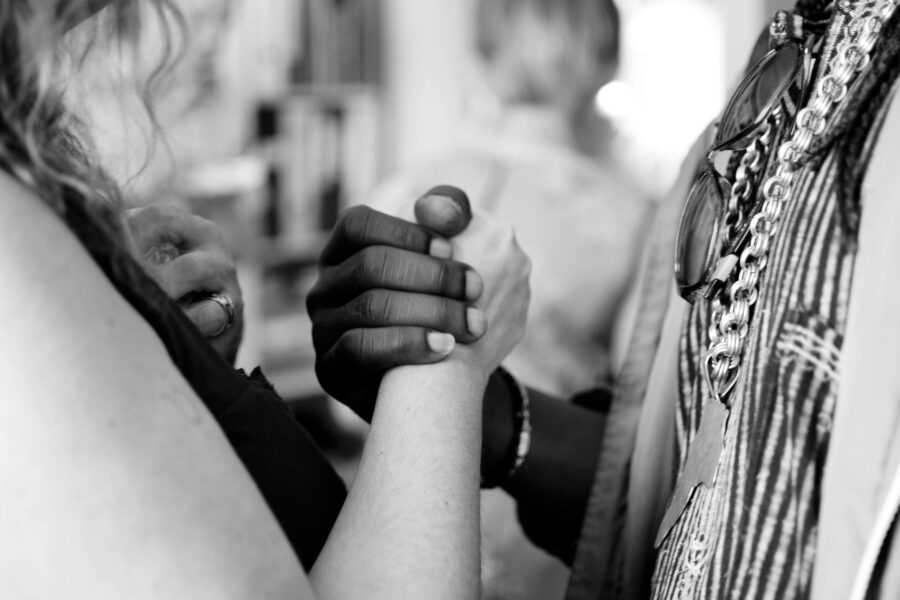In these divisive times, it can be easy to forget that our society has made huge social progress over the last century, certainly in the way of gender, racial and LGBTQ+ rights.
Of course, difficulties still exist; the ‘work’ of striking true diversity, equity and inclusion across institutions, sectors and organisations is far from complete. Many obstacles either stand in the way of faster progress or indeed threaten to derail what has already been achieved. The backlash against Diversity Equity & Inclusion, ‘wokeism’ and tokenism reminds us that we cannot afford to rest on our laurels.
The important thing is that marginalised groups – those who have, for so long, been short-changed in terms of opportunities to progress, to have a seat at the table and to lead – are being acknowledged, listened to and empowered to redress the imbalance. The establishment of awareness campaigns – from Pride to Black History Month, International Women’s Day to Disability Awareness Month – provides a vital means of tackling the ignorance which causes prejudice through the narratives of lived experience. Speaking out without fear of reprimand has been an important part of this unfolding social change.
That said, we must be mindful of how awareness days are recognised and used, so this avoids becoming just a box-tick for diversity. Vocally and visually supporting marginalised colleagues needs to be backed by policies and initiatives that tackle inherent inequities. Not only that, but these inequities are so massive and ingrained that the problem must be thought about, discussed and acted upon beyond the annual occasions given to them.
I am fortunate to be in a position to facilitate social progress alongside my day job. Currently, I’m spearheading a long-term strategy which aims to dismantle systemic racism across the business and our supply chain. As a Black LGBTQ+ man in the workplace, this sense of purpose comes from a personal place. Earlier on in my career, I struggled to find comfort in my own skin, feeling pretty isolated given that few leaders identified as Black or openly LGBTQ+. I had felt compelled to hide key aspects of my identity; to conform and comply to progress. This act of ‘covering’ – a strategy used by individuals that sees them manage or downplay their differences by avoiding, denying or underplaying their appearance, world values and behaviour to conform to the set standards of corporate culture – is now better understood, not least because it undermines company culture and leaves those who deliberately deny the expression of their true self, feeling like imposters.
Covering, of course, is an act of self-preservation; a means of survival where there can be very grave repercussions for being one’s authentic self. Around the world, LGBTQ+ people are still persecuted. In some Black communities, homophobia is sadly a common issue. Fines, imprisonment, death and societal ostracisation are very real consequences in some parts of the world.
In Britain, this fact is often forgotten, but some of those negative views towards homosexuality and the LGBTQ+ community are still held by people living here today. Business leaders who are not from diverse backgrounds may feel that it is no issue for LGBTQ+ people to come out and live as themselves, but there is a nuance that must be understood that, for some cultures, it really can be a matter of life and death.
Representation matters. It is a conduit for authenticity that enables marginalised colleagues to subsequently thrive. Inspirational, openly LGBTQ+ leaders play a big part in inspiring diverse colleagues and empowering them to follow in their footsteps. It disables fear. Certainly, if I had not had contact with visible role models later in my career, I doubt I would have had the confidence to come out of the closet. Allyship is also important and not just from White or non-LGBTQ+ allies. Diversity in allyship is equally as important as the representation itself. You can only be what you can see.
Awareness days, months and campaigns provide the platform for voices that are otherwise overlooked. These are opportune moments for true stories to be told and for experiences to be shared. Storytelling can be a potent force for change; an effective tool in the ongoing fight for equality. It can reset negative narratives and address misconceptions that help perpetuate prejudiced structures. This has never been more important to those in the Black community who can sometimes live with the repercussions of negative narratives of crime, disadvantage and underachievement every day – be that a perceived underestimation of their intelligence or their capability held by those in leadership.
Recognition of Black talent is key. Awards like the annual Black Talent Awards profile inspiring people who succeed professionally and personally despite the setbacks. I think about the lawyer who left school with very few qualifications only to become the first Black senior partner to be appointed in a Top 100 UK law firm. I also think about how far I’ve come too – a young man, brought up in care, who acquired an MBA and is now helping to drive fair and equitable representation for the Black community within his organisation.
These stories need to be told and retold all year round to dismantle the damage that negative narratives wield. For too long, especially at the grassroots, young Black people are often told what they can’t be. And the real tragedy is that many believe that they cannot achieve. It becomes a self-fulfilling prophecy.
I do feel that the constant dialogue around Black and LGBTQ+ inclusion within business communities is facilitating a shift in mindset and, in turn, enhancing the work culture. But an overarching strategy for DE&I must encompass, not be underpinned by, these singular occasions of awareness days. Meaningful, institutional change comes from a sustainable approach to recruitment, nurturing of talent and leadership that fosters diversity holistically.
I believe that there are opportunities that business leaders and HR Directors can take advantage of to improve things for both Black and LGBTQ+ talent – but first, they must fundamentally be attuned to their own shortcomings and understand that the task at hand needs a collaborative approach. It’s not the responsibility of Black people to tackle systemic racism, LGBTQ people to tackle homophobia or women to tackle sexism alone. True allyship means listening, supporting and responding meaningfully to marginalised colleagues to make change happen. ‘Better together’ is a well-used strapline but nothing articulates the sentiment clearer: social progress can only be accelerated and sustained if everyone considers themselves a stakeholder in a fairer, kinder and more equitable world. It makes sense ethically and economically.

Leon Donald
Leon Donald is Category Buying Manager at Tesco. He is a former winner of the 2023 Black Talent Awards andthe 2022 Inspirational Leader Award at the Ethnicity Awards for spearheading the Tesco Black Action Plan – an eight-year strategy which aims to dismantle systemic racism.


